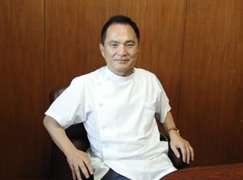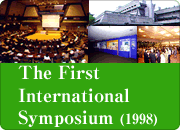Kansai Electric Power Hospital, Japan
Yutaka Seino
Born in Fukuoka, Fukuoka in 1941.
Graduated from the Kyoto University Graduate School of Medicine.
Professor of Diabetes and Clinical Nutrition, Kyoto University Graduate School of Medicine
President, Kansai Electric Power Hospital
Professor Emeritus, Kyoto University Graduate School of Medicine
Chair, Japan Association for Diabetes Education and Care
Chair, Japan Society of Metabolism and Clinical Nutrition
Director, Japan Diabetes Society
Chair Elect, International Diabetes Federation, Western Pacific Region (IDF-WPR)

I was born in Fukuoka just before WWII, but I moved to Yonago in Tottori Prefecture with my family soon thereafter. In my youth, I saw a brutal war end and the rebuilding in its aftermath start. My father, who was a military doctor (later a Professor at Tottori University), was a quiet gentle man, whereas my mother was an English teacher at a girl’s school and had a driver’ license, which was very uncommon for women in those days, so she was a high positioned women in her day. With those kind of parents and three siblings, all of whom aspired to become physicians, I did not hesitate in choosing medicine as my path to the future. In my junior high school days, I led a carefree life that included tennis, but through high school and college, I worked hard to achieve my goal of becoming a doctor. Soon after graduating from college, an internal dispute broke out at school and I felt rushed as an intern at the very end.
Later, I was hired by Tsukaguchi Hospital in Hyogo Prefecture where I began researching diabetes. I was able to do clinical research through hormone measurements, etc. Later, I entered Internal Medicine Department No. 3 at Kobe University through the auspices of a teacher, where I was able to interact with and examine many patients with diabetes, etc., and compile lots of data. In the years that animal testing was the mainstream, I realized how important that experience was to my work. Even after I transferred to a research facility at Kyoto University, I continued my research into identifying the hereditary factors of diabetes and the characteristics of diabetes in Japanese people, which I worked on for 20 years. I learned during my years at Kyoto University that perseverance and consistency were important for research. The same applies today: pursuing a particular subject over the years builds one’s confidence in one’s work. This unwavering faith is what keeps me going even today. The rise in diabetes needs to be addressed on the national level (i.e., dissemination of information, nutritional guidance, prevention, etc.) not only because of the social and economic impacts but also because of the handicap it can place on a patient’s lifestyle. Governments and businesses need to go beyond themselves and take a stance of contributing to society.
Yet, the most important thing is for the general public to know how to eat right. At this symposium, I want to convey far and wide the wonderfulness of Japan’s traditional culinary culture, which includes rice, the theme of the symposium.
| Hobbies: | I haven’t any “hobbies” in the true sense of the word, but I like to give my time to volunteer activities. |
|---|---|
| In Wakayama: | In my few trips there, I have always enjoyed deliciously fresh seafood. The fruit is tasty, as well. |






